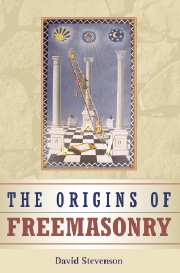Book contents
- Frontmatter
- Contents
- List of plates
- Preface
- List of abbreviations and conventions
- 1 Introduction
- 2 The Medieval contribution
- 3 William Schaw, master of works and general warden
- 4 The Sinelairs of Roslin and the masters of works
- 5 The Renaissance contribution
- 6 Rituals of identification and initiation
- 7 Sir Robert Moray: masonry, symbolism and ethics
- 8 The early Scottish lodges
- 9 Early Scottish and English freemasonry
- Appendix: Early (pre-1710) masonic lodges in Scotland
- Bibliographical note
- Index
- Plate section
6 - Rituals of identification and initiation
Published online by Cambridge University Press: 06 July 2010
- Frontmatter
- Contents
- List of plates
- Preface
- List of abbreviations and conventions
- 1 Introduction
- 2 The Medieval contribution
- 3 William Schaw, master of works and general warden
- 4 The Sinelairs of Roslin and the masters of works
- 5 The Renaissance contribution
- 6 Rituals of identification and initiation
- 7 Sir Robert Moray: masonry, symbolism and ethics
- 8 The early Scottish lodges
- 9 Early Scottish and English freemasonry
- Appendix: Early (pre-1710) masonic lodges in Scotland
- Bibliographical note
- Index
- Plate section
Summary
The Mason Word
Nearly all that is known of the secrets and rituals of the Scottish masons in the seventeenth century is derived from the catechisms which survive from the end of that century and the beginning of the next. At the centre of the esoteric activities described in the catechisms lay the Mason Word, and it was through talk of it that outsiders first learned that the masons had secrets. Scattered references to the Word occur from the 1630s onwards, and through them something can be discerned of how outsiders perceived the masons and their rumoured secrets. Surveying these references thus takes on something of the character of a progressive revelation of what was known of the esoteric side of the craft. Surprisingly, this handful of references in non-masonic sources to the Mason Word is not accompanied by similar references to the masonic lodges, suggesting that convention among the masons dictated that lodges should not be mentioned to outsiders, but that it was permissible (or gradually became permissible) to intrigue the uninitiated by referring to the existence of the Word – though of course without revealing its secrets.
The earliest of all the references to the Word is also one of the hardest to interpret. Henry Adamson, reader (a sort of assistant to the parish minister) and master of the song school of Perth composed a long and stupendously tedious poem, which was published in Edinburgh in 1638 under the title The muses threnodie, or, mirthfull mournings on the death of Master Gall.
- Type
- Chapter
- Information
- The Origins of FreemasonryScotland's Century, 1590–1710, pp. 125 - 165Publisher: Cambridge University PressPrint publication year: 1988



